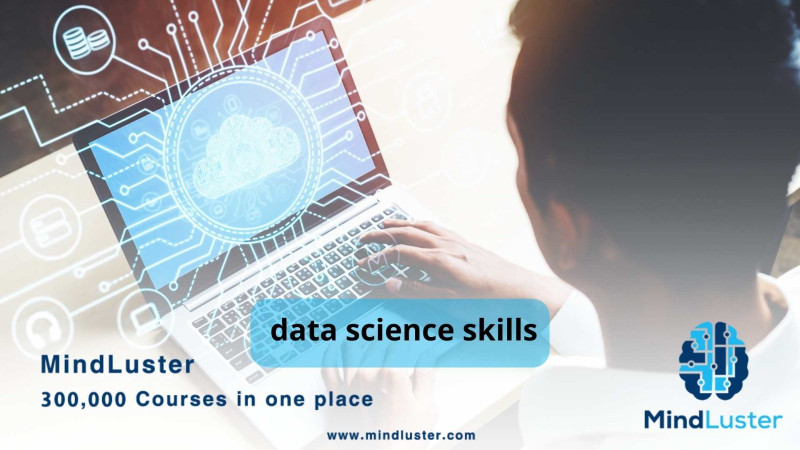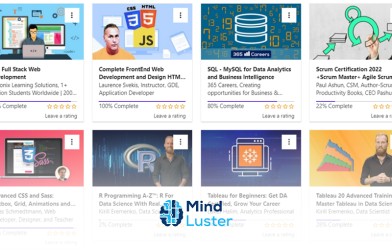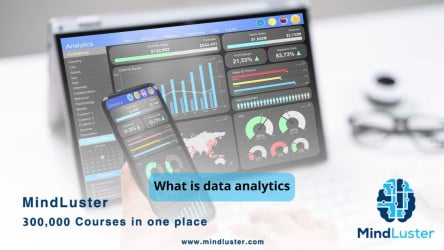Since the rise of Web3, the landscape of careers is rapidly evolving, with new opportunities emerging at the forefront. Among these, data science stands out as one of the most critical fields, empowering companies to navigate vast amounts of data with precision.
From understanding statistical methods to leveraging machine learning algorithms, essential data science skills open doors to a multitude of career opportunities. Also, as a data scientist, there are a bunch of non-technical skills that will help you in your career.
Keep reading this blog to learn more about the technical and non-technical skills you need as a data scientist and how to excel in this dynamic and ever-changing world.
Technical skills for data scientist
As we mentioned above, to shine as a data scientist, these are the essential skills you need to learn, Although they are not the only essential data science skills needed, technical skills are considered the backbone of every data scientist. You have to build a solid foundation of different programming and mathematical skills in addition to.
Programming
As a data scientist just starting out, you should know how to use many programming languages, including:
Gaining a broad skill set in programming languages will equip you to tackle various data analysis tasks with confidence and versatility. Each programming language offers unique capabilities and advantages, allowing you to leverage different tools and techniques to manipulate, analyze, and visualize data effectively.
In addition to programming, you have to gain a wide variety of essential data science skills in statistics and probability. Let’s move next on our agenda and see what mathematical statistics skills you need in more detail.
Essential probability and statistics Data Science Skills
One of your tasks as a data scientist is to write high quality machine learning models and algorithms. Statistical analysis concepts like linear regression are one of the essential data science skills you need to use for machine learning.
Additionally, you need to be able to collect, interpret, organize, and present data, as well as fully understand data science math concepts such as mean, median, mode, variance, and standard deviation. The statistical techniques you should be aware of include:
- Probability distributions
- Over and undersampling
- Bayesian and frequentist statistics
- Dimension reduction
Now, after learning about the statistically essential data science skills, let’s move on to learn about data wrangling and database management.
Data wrangling
Close your eyes and imagine this, you have a mountain of complex data that you need to clean and organize. Here comes the role of data wrangling. As one of the most essential data science skills, it helps you manipulate the data to categorize it by patterns and trends, as well as correct any input data values without consuming so much time. Data wrangling useful tools are :
Cloud computing
Analyzing and visualizing data stored on cloud platforms is one of your crucial tasks as a data scientist, so cloud computing has to be one of the essential data science skills to learn. To learn more about cloud services, you can subscribe to certifications such as:
- Amazon Web Service ( AWS)
- Microsoft Azure
- Google Cloud
These tools give you access to cloud-based databases and frameworks, which play a crucial role in driving technological advancements. They're widely used across many industries nowadays, making it essential for data scientists to grasp the concepts of cloud computing.
Machine learning and deep learning
Immersing yourself in machine learning and deep learning has to be your go-to destination as a data scientist. Gaining those skills as a part of your essential data science skills will give you the ability to gather and synthesize data more efficiently, as well as predict the outcomes of future data sets. For example, by using logistic regression, you can predict whether a customer will purchase a product (a binary outcome: purchase or not) based on variables such as age, gender, and income. Also, by using Naive Bayes in e-commerce, you can predict whether the customer is likely to make a purchase based on factors such as past purchase history, browsing behavior, demographic information, and interactions with apps and websites. Machine learning algorithms you should learn as a data scientist are:
- Linear regression
- Logistic regression
- Naive Bayes
- Decision tree
- Random forest algorithm
- K-nearest neighbor (KNN)
- K means algorithm
After analysing all this data, now is the time to present it to stakeholders and other teams, such as marketing and sales teams. In the next section, you will learn how data visualization will help you transform complex data sets into easily understandable visual representations.
Data visualization
Let’s agree that without the ability to present your findings in an easily understandable way, all your work as a data scientist is worth nothing. That is why data visualization is one of the most essential data science skills you should have. Being familiar with the following tools should help you:
- Tableau
- Microsoft Excel
- PowerBI
As we have mentioned in the beginning, to be a shining star in the sky of data science, you need to add some non-technical skills to the technical ones we have just listed. In the next section, we will dive deep into the non-technical skills you could add to your pack of essential data science skills.
Non-technical data science skills
As much as technical skills are important, you also have to develop some workplace skills in order to cooperate with other team members and to pave your way in data science field. The skills you need to hone as a data scientist are:
Interpersonal skills
Just as visualizing data is vital for sharing insights as a data scientist, collaborating harmoniously with teams is equally essential. Below are some interpersonal skills you can cultivate:
- Active listening
- Effective Communication skills
- Sharing feedback
- Attention to detail
Curiosity
When you ask insightful questions and stay open to what the data reveals, you can uncover unexpected opportunities and steer clear of any preconceived biases in your analysis. For the previously mentioned reason, curiosity is an important characteristic of every data scientist's personality.
Ethical skills
Since data is one of an organization's most valuable assets, data scientists must be trusted to maintain confidentiality and protect the security of the data they handle, in addition to being aware of how their machine learning models work to overcome biases and aim for impartiality.
After gaining all the essential skills needed to be a data scientist, you can take some steps to increase your level of awareness concerning the field and keep yourself updated, such as:
- Getting involved in the community: communicating with other data scientists will help you keep yourself updated and exposed to different points of view.
- Attending events: attending events will help you get yourself a place in the middle of the professional data scientists.
Join Mindluster now to access a wealth of free resources designed to propel your career as a data scientist.









